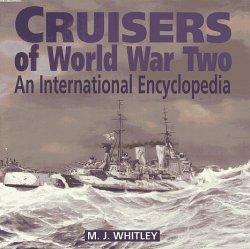The IRA subsequently called off the cease-fire and, within two weeks, planted 22 explosives in Belfast that detonated in close succession and with minimal advance warning, killing 11 and wounding scores of others. In the republic the leader of the Provisional IRA, Sean MacStiofain, was sentenced to six months' imprisonment for IRA membership by one of the special courts authorized in May. The government proposed an amendment to the Offenses against the State Act, which would allow the statement of a police officer to suffice as evidence of an accused person's membership in an unlawful organization, as well as to allow certain types of meetings to be proscribed. The legislation drew considerable opposition in Bail fiireann from both opposition parties, based on civil liberties concerns. However, bomb explosions in Dublin, which killed two and injured over 100, dissipated much of the opposition and the legislation passed. The next month the president of Provisional Sinn Fein, Ruairi O'Bradaigh, was sentenced to six months' imprisonment for IRA membership by a special court. In March 1973 the Irish authorities seized a vessel, The Claudia, off the Waterford coast, which was found to be carrying a large amount of weapons and several IRA members.
The formation in March of a coalition government in Ireland following the February elections enhanced the prospects for a strong attitude against the IRA and possible co-operation with the British government. The new Taoiseach was Liam Cosgrave of Fine Gael, the son of the Irish Free State leader. Garret FitzGerald, the son of another Free State minister, became minister for foreign affairs. Brendan Corish, the Labour Party leader, who had joined with Fine Gael in waging a coalition electoral campaign, became Tanaiste, and the celebrated diplomat-academic Connor Cruise O'Brien, who had already become an outspoken advocate of an anti-irredentist and revisionist approach by the Irish toward Northern Ireland, became minister for posts and telegraphs. The only deviation from the seeming ascendancy of anti-irredentist and revisionist thinking was the failure in May 1973 of Thomas F. O'Higgins, the nephew of the murdered Free State minister for justice, Kevin O'Higgins, to be elected president of Ireland to succeed Eamon de Valera, who in his 91st year, had concluded his second term. He lost narrowly to the Fianna Fail candidate, Erskine Childers, the son of the war of independence figure who was executed by the Provisional Government during the civil war. Childers died suddenly in November 1974. Cearbhall O'Dalaigh, a member of Fianna Fail, succeeded him without opposition.
In Northern Ireland, under direct rule, steps were being taken toward a return to devolved government. Elections to local district councils, now shorn of the sectarian gerrymandering that had caused so much difficulty in the past, took place in May. The results, under the Single Transferable Voting system of proportional representation similar to that in use in the Irish republic, gave the Unionists 201 places, the SDLP 76, the Democratic Unionists and Vanguard 74, and the Alliance Party 59. The next month elections to a new Northern Ireland Assembly to replace the prorogued parliament, also under the STV system, returned 23 Ulster Unionist Party candidates and 10 other unionists, 19 SDLP members, eight Alliance members, 17 assorted DUP, Vanguard and loyalist candidates, and one member of the Northern Ireland Labour Party. By November the Ulster Unionists, the SDLP, and the Alliance members of the assembly agreed to form a "power-sharing" coalition executive, to be chaired by Brian Faulkner, with other ministerial posts distributed proportionally to the other parties.
The next month, at a conference in Sunningdale, England, the British and Irish governments and the new Northern Ireland executive confirmed the new system in Northern Ireland, and participants agreed that there would be no change in the status of Northern Ireland in relation to Britain without the consent of the majority of its population. The conference also called for a "Council of Ireland" consisting of ministers and a consultative assembly composed of members from both parts of Ireland to deal with mutual problems. The conference also sought to resolve the dilemma posed by extradition of politically motivated violent criminals to allow them to be tried in the jurisdiction where they were apprehended.
The following May a general strike conducted by the Ulster Workers' Council brought down the Sunningdale Agreement and the coalition executive. Government in the province was paralyzed and the Unionist members of the executive resigned from office. The British government prorogued the assembly and restored direct rule from Westminster. Some believe the general strike succeeded because of a reluctance on the part of the Labour government, formed only after the general elections held in February, to directly confront a workers' strike, no matter who the workers were, especially since electoral success in Britain as a whole had depended so much on labor union support.
A year later the Northern Ireland voters, again according to the STV system, elected a Northern Ireland Convention to formulate a constitutional structure that might allow power to be devolved again to the province. The Ulster Unionists secured 19 places, the more loyalist groups, including the Vanguard Unionists and the DUP 27 places, while the groups that continued to favor power-sharing, the SDLP, Alliance, and a small group of Unionists led by Brian Faulkner, obtained a total of 30 places, which guaranteed that the convention would reject powersharing and be dissolved the next year.
In the meantime the social turmoil within Northern Ireland began to spill over to the British mainland and to the Irish Republic. In May 1974 car bomb explosions in Dublin and Monaghan killed 31 and injured over 100. In June the Earl and Countess of Donoughmore were kidnapped from their Tipperary home and held for five days by the IRA. In August 19 IRA prisoners escaped from Portlaoise prison. In October 1975 the IRA kidnapped a Dutch businessman in the Irish Republic and held him for a month until a siege by the Garda secured his release. In Britain, bombs in public houses in Guildford in October 1974 and in Birmingham in November killed, respectively, five and 21, and injured 65 and 182. In response, parliament passed a Prevention of Terrorism Act facilitating the deportation from and prohibition of entry into Britain of suspected terrorists.
In July 1976 Christopher Ewart-Biggs, the British ambassador to Ireland, was killed by a land mine near his home in County Wicklow. This killing prompted the Irish government to introduce stronger emergency powers legislation to allow detainees a longer period of detention before being charged. The measure passed the Bail, and was approved by the Irish Supreme Court, to whom the president had sent the measure for a ruling as to its constitutionality. Minister for Defense Patrick Donegan condemned the president's action as a "thundering disgrace" for having thereby delayed the implementation of the measure. The president resigned in a gesture to protect the dignity of the office. He was succeeded by Patrick Hillery, also of Fianna Fail and a former minister for foreign affairs, who was also selected unopposed.
In July 1973 the Westminster parliament passed a Northern Ireland Emergency Provisions Act that implemented the December 1972 recommendations of a commission headed by Lord Diplock for dealing with terrorist offenses. The act sought to find a middle ground between the practice of internment without trial and normal trials, which were impossible to conduct in Northern Ireland in view of the threat of terrorist reprisal on jurors and witnesses and because of difficulties in certain areas for law enforcement officials to conduct regular forensic examinations. The legislation resembled that in the Irish republic in making provision for juryless trials. It allowed trials for certain specified offenses to be conducted by a single judge. In addition, the legislation suspended numerous common law restrictions and rules on witnesses and evidence in these cases and allowed prisoners to be detained for several days before being charged. With this legislation in hand, the government ended internment without trial in November 1975.
No doubt many in the nationalist Catholic community regarded the Diplock court system merely as a cover for abuse by authorities, but the courts operated against loyalist terrorists as well. However, a September 1976 ruling by the European Commission on Human Rights that the British were guilty of using torture in the interrogation of republican prisoners reinforced popular nationalist opposition, although that ruling referred to events in the earlier stages of the troubles and not to activity under the Diplock regime. Significantly, the annual number of deaths from political violence in Northern Ireland, which had ranged between 200 and 300 from 1973 through 1976, dropped to slightly over 100 in 1977 and remained at that level or below for the remainder of "the Troubles."
A nonsectarian opposition to the violence sprang up in 1976 when two women, a Protestant, Betty Williams, and a Catholic, Mairead Corrigan, organized peace marches that drew thousands following the death of three children, relations of Corrigan, who were hit by a car fleeing army pursuers. Their efforts drew international attention and earned both women the Nobel Peace Prize for that year.




 World History
World History









